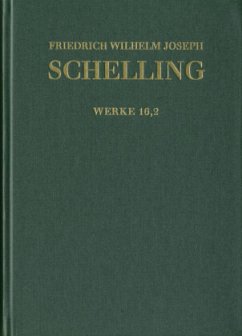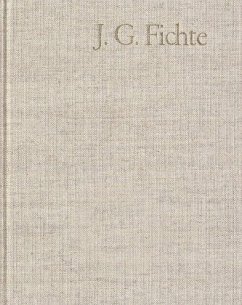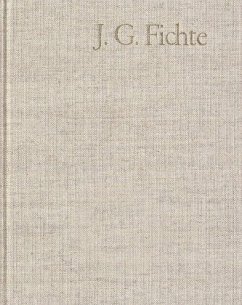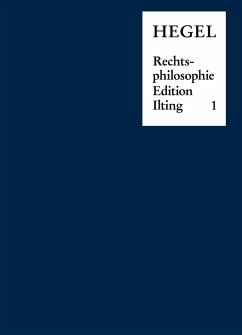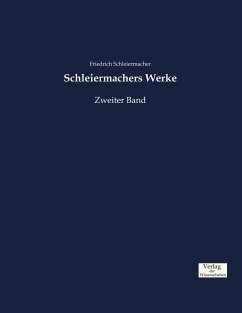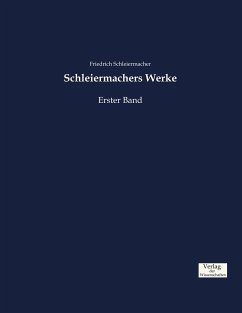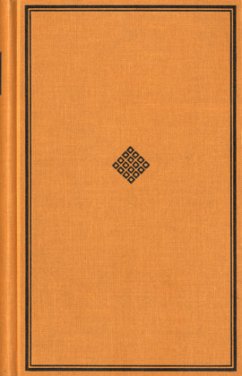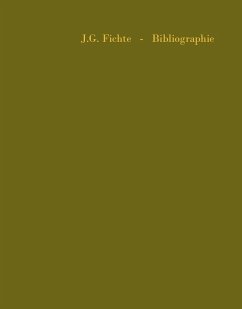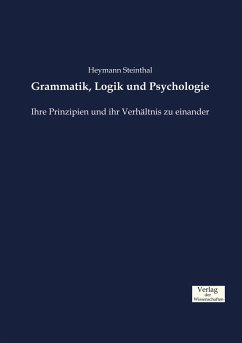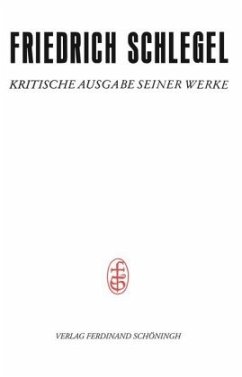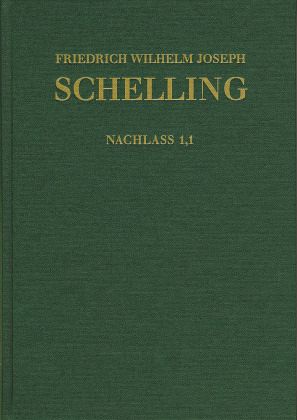
Friedrich Wilhelm Joseph Schelling: Historisch-kritische Ausgabe / Reihe II: Nachlaß. Band II,1,1: Frühe Bebenhäuser Arb / Friedrich Wilhelm Joseph Schelling: Historisch-kritische Ausgabe Reihe II: Nachlaß. Band
Kritisch kommentierte Ausgabe
Herausgegeben: Durner, Manfred; Durner, Manfred; Jacobs, Wilhelm G.; Jantzen, Jörg, Herausgegeben: Danz, Christian; Buchheim, Thomas; Hennigfeld, Jochem; Jacobs, Wilhelm G.; Jantzen, Jörg; Peetz, Siegbert; Arnold, Christopher; Zierl, Andreas; Im Auftrag der Bayerischen Akademie der Wisse
Versandkostenfrei!
Sofort lieferbar
298,00 €
inkl. MwSt.

PAYBACK Punkte
0 °P sammeln!
Der Band macht Schellings früheste Arbeiten aus seiner Schulzeit in Bebenhausen erstmals in historisch-kritischer Edition zugänglich, darunter die zum Abschluss der Schulzeit gehaltene 'Oratio canicularis' (Hundstagrede), in der es um den Nutzen der alten Sprachen geht. Einige der Texte gehen auf den Unterricht von Joseph Friedrich Schelling zurück, der seit 1777 an der Klosterschule Bebenhausen als Professor tätig war. Die in diesem Rahmen entstandene Auslegung der Psalmen dokumentiert die Anfänge von Schellings bibelhermeneutischer und exegetischer Beschäftigung. Neben dieser Bearbeitu...
Der Band macht Schellings früheste Arbeiten aus seiner Schulzeit in Bebenhausen erstmals in historisch-kritischer Edition zugänglich, darunter die zum Abschluss der Schulzeit gehaltene 'Oratio canicularis' (Hundstagrede), in der es um den Nutzen der alten Sprachen geht. Einige der Texte gehen auf den Unterricht von Joseph Friedrich Schelling zurück, der seit 1777 an der Klosterschule Bebenhausen als Professor tätig war. Die in diesem Rahmen entstandene Auslegung der Psalmen dokumentiert die Anfänge von Schellings bibelhermeneutischer und exegetischer Beschäftigung. Neben dieser Bearbeitung sind in den Band zwei in Hexametern verfasste lateinische Gedichte, das Textfragment »Geschichte des Klosters Bebenhausen« sowie Auslegungen von klassischen griechischen Autoren wie Isocrates und Pindar aufgenommen.



